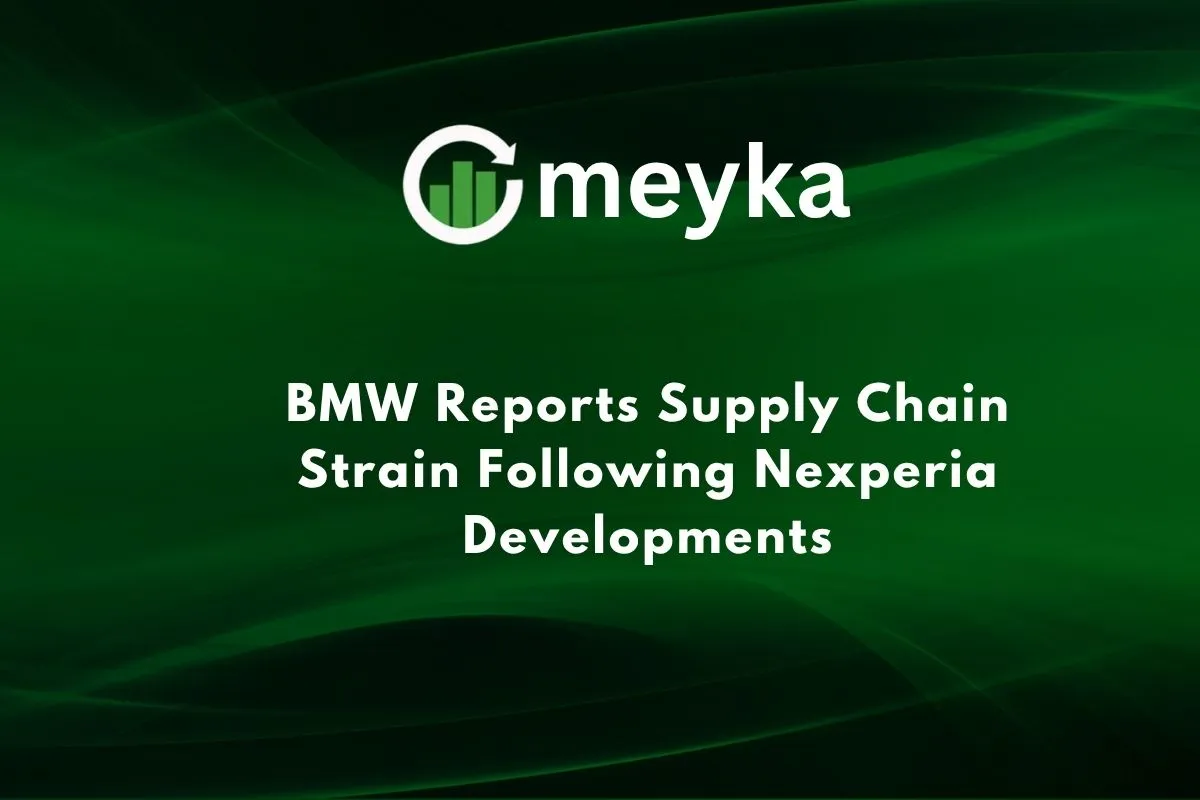BMW Reports Supply Chain Strain Following Nexperia Developments
BMW has warned that its supplier network is under strain after new moves around Nexperia, a key semiconductor firm. The Dutch government recently took control of Nexperia over governance and security concerns. We live in a world where cars need more and more chips inside electric systems, safety controls, and infotainment. When one major chip supplier is disrupted, many automakers feel the impact. We’ll explore what’s happening at Nexperia, how BMW is affected, and what all this might mean for the auto industry.
Background: BMW’s Dependence on Semiconductor Suppliers
In modern vehicles, almost every system, from engine control to driver assistance, relies on semiconductors. BMW is no exception. Over recent years, BMW has built tight relationships with chip manufacturers to ensure a steady supply.
After the COVID-19 pandemic, we saw just how fragile the supply chains can be. Automakers globally were forced to pause production when chip supply dried up. That experience made BMW and others push for better visibility, buffer stocks, and flexibility in sourcing.
Who is Nexperia?
Nexperia is a semiconductor company based in the Netherlands. It produces discrete components (e.g., transistors, diodes), logic devices, and MOSFETs.
It was spun off from NXP in 2017. Its parent company is Wingtech, a Chinese firm.
Nexperia also works in automotive-grade chips. For example, it launched 1200 V silicon carbide MOSFETs for use in EVs. That makes it integral to modern car design.
The Trigger: What Happened at Nexperia?
In October 2025, the Dutch government invoked special powers (Goods Availability Act) to assume control over Nexperia’s board and operations, citing “serious administrative shortcomings” and national security risks. Following that, U.S. and Chinese export restrictions were placed on Nexperia. China barred exports from Nexperia’s units in China, affecting about 80% of its output.
In its official update, Nexperia announced the suspension of its former CEO, Zhang Xuezhen, and that the majority voting rights held by Wingtech are now under an independent administrator.
These combined moves have created legal, operational, and geopolitical confusion around Nexperia’s ability to ship parts reliably.
How BMW is Affected
BMW says part of its supplier network is already feeling the strain due to the restrictions on Nexperia. Some key components, especially power semiconductors or safety modules, could come from Nexperia or firms in its chain.
BMW has stated it is in close contact with its suppliers and is assessing supply risk continuously.
So far, BMW insists that production at its own plants remains on schedule. But that could change if disruptions deepen.
Broader Industry Ripple Effects
BMW is not alone. Other automakers using power transistors or logic chips from Nexperia may face similar troubles. Tier-1 and Tier-2 suppliers that source Nexperia chips could suffer delays, forcing redesigns or alternate sourcing.
Market watchers see this as part of a trend: geopolitical tensions now reach deep into tech and auto supply chains.
Stock markets have already reacted; Wingtech shares plunged after news of the Dutch takeover.
Mitigation Strategies by BMW
We expect BMW to accelerate contingency planning. That includes sourcing chips from alternate suppliers (Infineon, STMicro, On Semiconductor, etc.). Analysts already suggest companies may shift orders. BMW may increase buffer stocks or build more flexible inventory lines.
They might also renegotiate contracts with suppliers to allow more switching. Another path: closer cooperation with governments or industry associations to ease regulatory hurdles.
Regulatory and Geopolitical Context
This is not just a business issue; it’s political. The U.S. has imposed export controls on Wingtech, which affect Nexperia by extension. The Dutch government intervened based on concerns that sensitive semiconductor technology could leak to China.
China’s retaliatory export bans on Nexperia’s China operations add tension. All this illustrates how national security, tech sovereignty, and trade policy now play a direct role in manufacturing.
Future Outlook
In the short term, we may see supply interruptions or price rises for chip-dependent auto parts.
BMW and others will likely accelerate diversification of their supply base. In the medium term, Europe may enhance its domestic chip capacity and rethink reliance on geopolitical hotspots.
If Nexperia stabilizes under new governance, it may regain trust, but not without hurdles.
Long-term, the industry might push for supply chains that are more resilient, less centralized, and less subject to single‐supplier risk.
Conclusion
The Nexperia saga shows how fragile automotive supply chains can become when politics and security intersect. BMW is already feeling pressure, although it has not yet halted production.
What comes next depends on legal rulings, government moves, and how well industry players adapt. For automakers, chip firms, regulators, and investors alike, this is a key story to watch.
The case of Nexperia is more than a corporate dispute; it’s a warning. In our connected, tech-driven world, supply chains are exposed to far more than just economic forces.
Disclaimer:
This content is for informational purposes only and is not financial advice. Always conduct your research.






